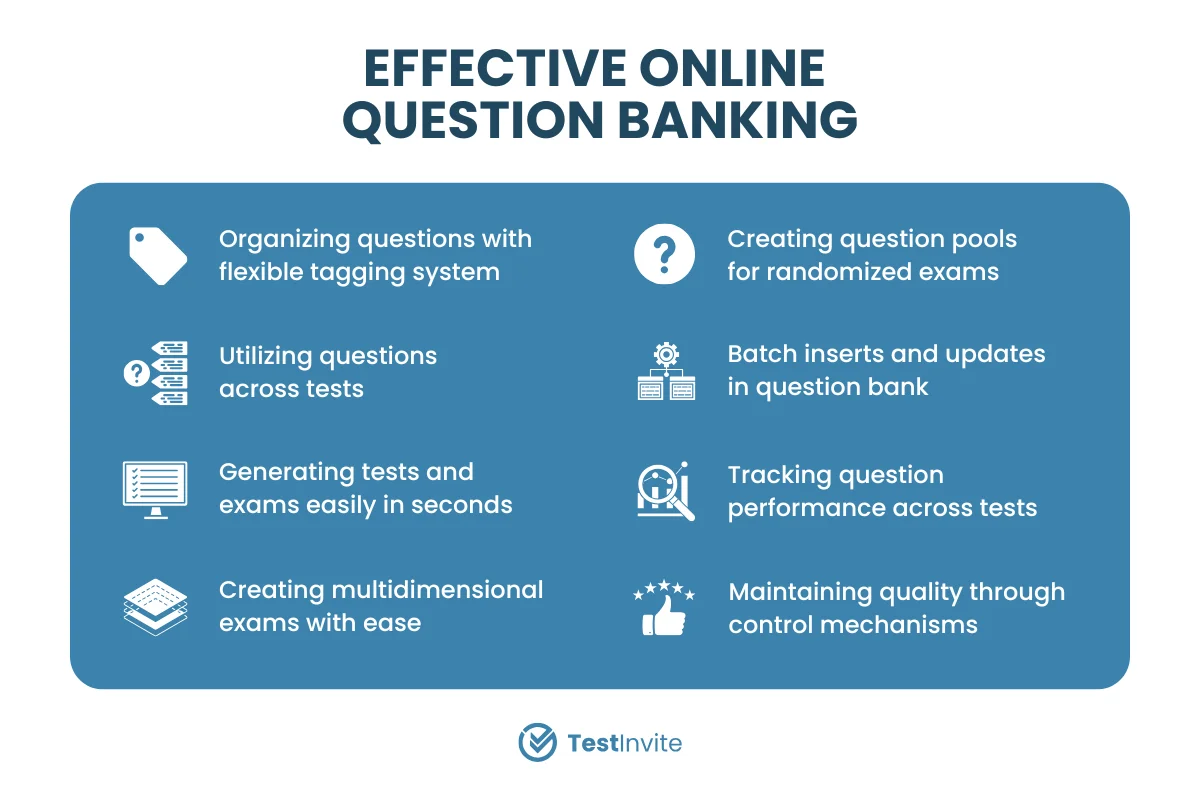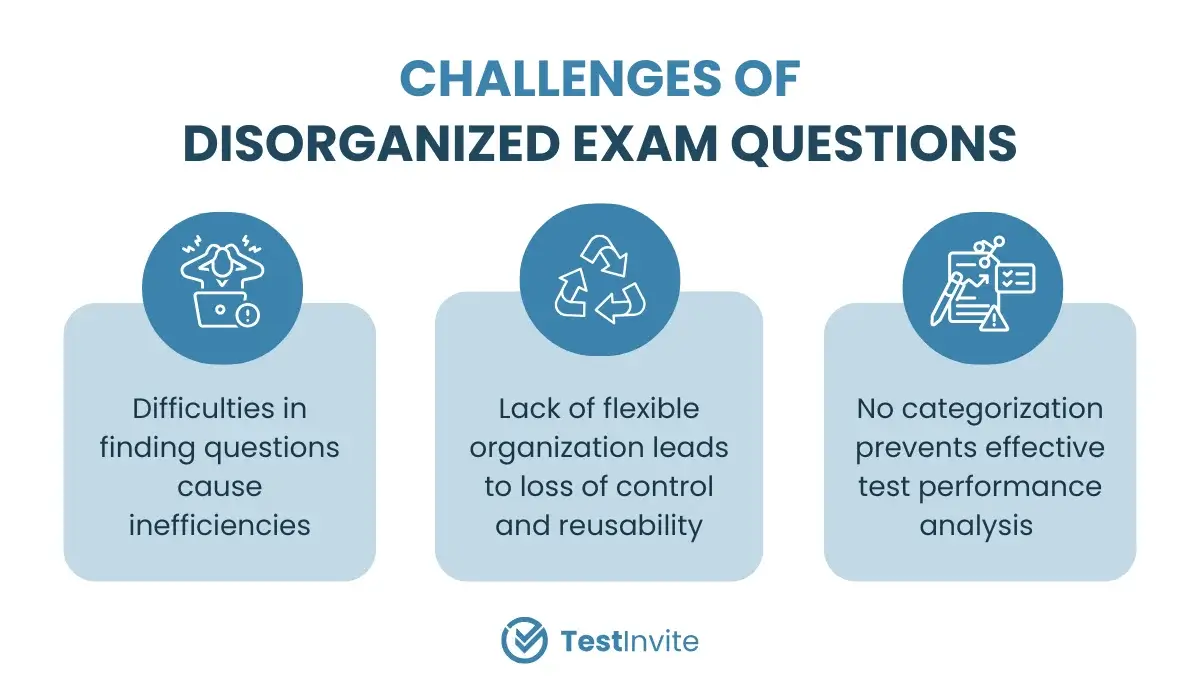All Resources

Efficiently managing exam questions is vital for institutions and organizations, with organized question banks playing a central role in achieving this efficiency. These banks serve as centralized repositories for questions, categorizing them by attributes such as subjects, topics, and difficulty levels. This structured approach simplifies question retrieval and their use across various assessments, promoting consistency and saving time.
Furthermore, well-structured question banks support question reuse, maintain quality through quality control mechanisms, offer valuable insights through data-driven analysis, and enhance the security of sensitive exam materials. In summary, organized question banks streamline exam question management, contributing to improved quality, efficiency, and effectiveness in educational and testing contexts.
TestInvite features a built-in online question banking capability that empowers organizations to centralize their exam questions, employ a flexible tagging system for versatile organization, utilize questions across multiple tests and question pools, and effortlessly monitor their performance analysis.

In TestInvite, you can assign multiple tags to each question. Each tag consists of a key and value pair, allowing questions to be tagged with any number of combinations. The question bank automatically indexes the use of all tags and values, providing an intuitive user interface for easy navigation. Users can simply select tags and values to retrieve the relevant set of questions whenever needed.
TestInvite's Question Bank seamlessly integrates with the exam authoring tool, allowing you to effortlessly choose questions and insert them into your test sections or pages as desired.
Just as you can effortlessly incorporate your preferred questions from the question bank into your exam, you can also utilize tools for the automatic generation of exams. This is achieved by merely selecting the questions from the question bank and configuring the distribution of the selected questions into pages as per your preferences.
Question banks empower organizations to effortlessly design multidimensional exams that assess various facets of individuals. This is achieved by seamlessly navigating the question bank and selecting the specific aspects you wish to measure in the exam, then incorporating existing questions from the question bank that align with those aspects.
Question banks that facilitate filtering and retrieving the correct sets of questions with shared attributes are highly effective when generating question pools for exams that employ systematic randomization. In such cases, questions are randomly selected from these pools, which include numerous alternative questions with matching attributes like learning outcomes, subjects, difficulty levels, and topics.
Question bank management becomes effortless with our batch insert and update tools. Importing questions is a breeze thanks to the provided tools and templates, ensuring a seamless process. Similarly, exporting questions or updating specific attributes across multiple questions is simplified, offering a user-friendly experience for comprehensive question bank management.
The question bank serves as the central hub where organizations can monitor the performance of their questions across multiple tests. It offers a straightforward way to analyze question performance trends over time, allowing you to gain valuable insights into the effectiveness of your questions, identify areas for improvement, and maintain the ongoing quality and relevance of your assessments.
Question banks centralize exam questions for use across multiple tests. However, without a flexible organization system, questions can become disorganized, causing difficulties in locating them when needed. This leads to limited reusability, inefficiencies, and a loss of control. Additionally, the absence of categorization based on various attributes hinders the analysis of question performance across different tests and exams.

Folders typically provide a one-level organizational structure, making it challenging to classify questions based on multiple attributes simultaneously. This limitation becomes particularly evident when questions belong to several categories, impeding quick and efficient retrieval.
Additionally, basic folders lack flexibility to adapt to changing needs, making it challenging to incorporate new criteria or attributes for question classification. These folders often lack advanced metadata capabilities, such as tagging or keyword search, which are essential for swiftly identifying and retrieving specific questions based on various attributes like topics, difficulty levels, or keywords. As question collections grow, scalability challenges become more pronounced, further hindering their effective organization.